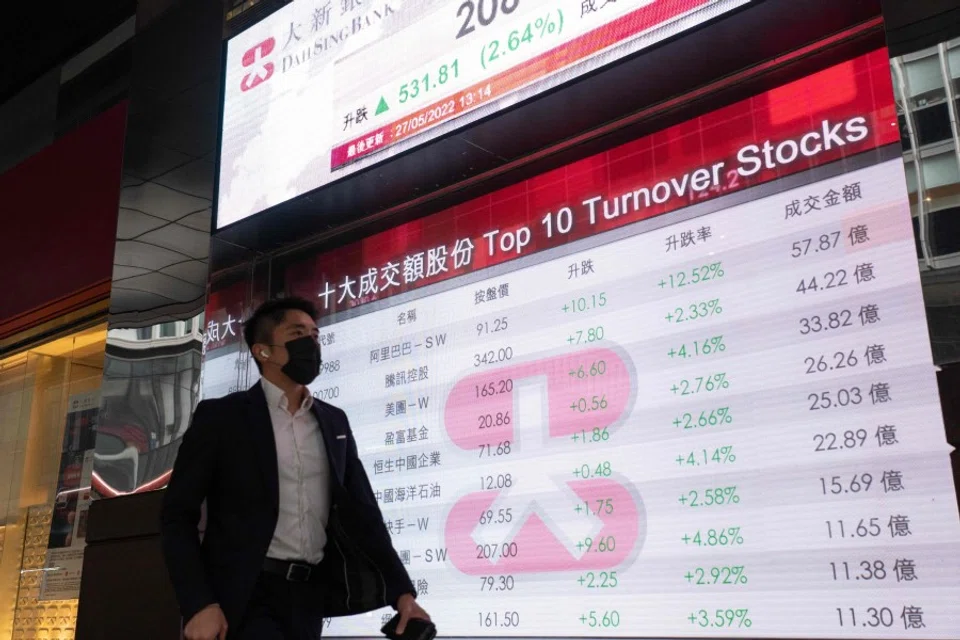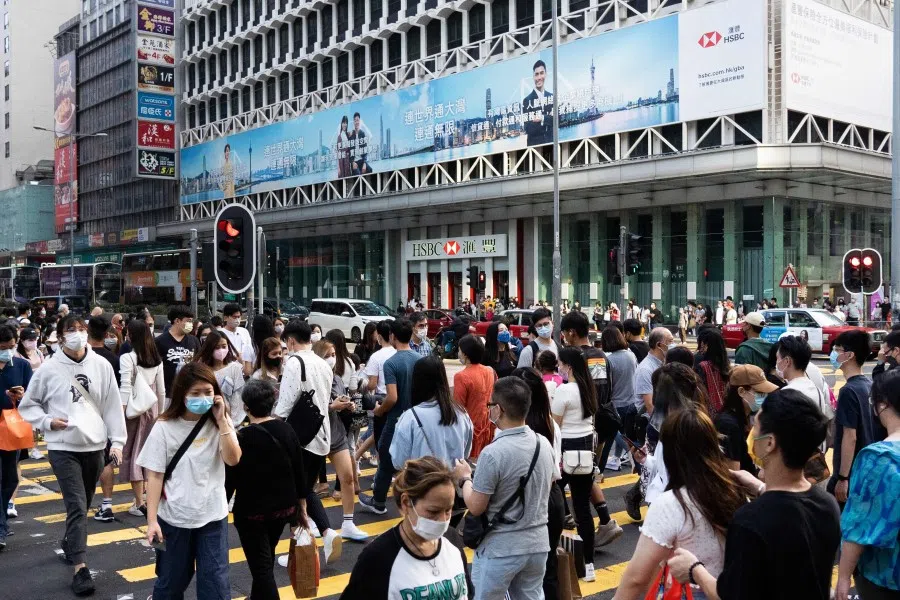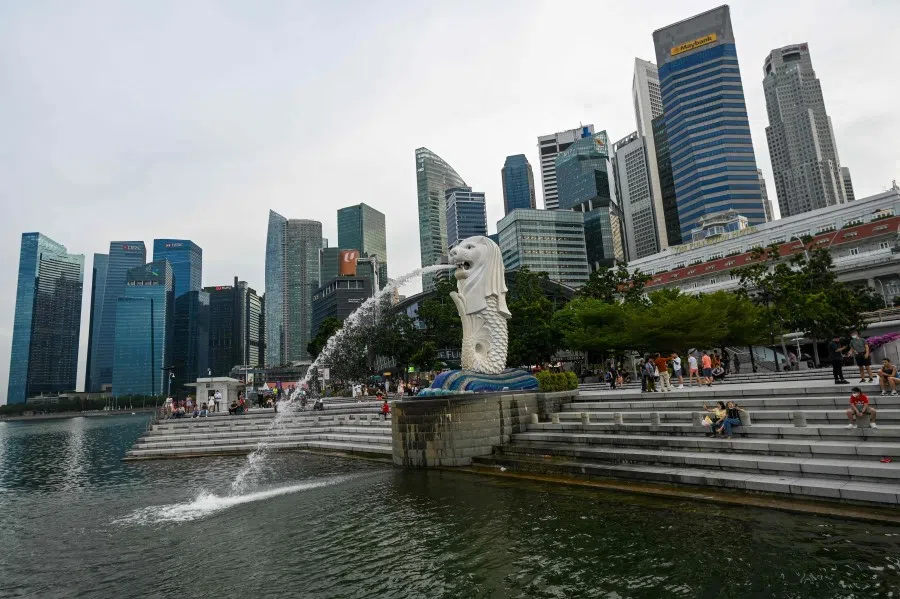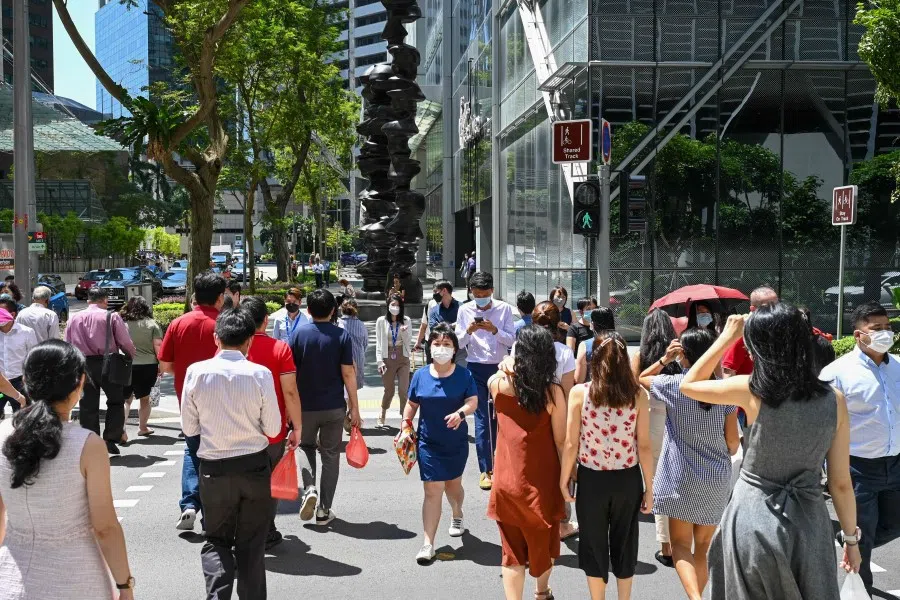Geopolitics affecting HK's financial market. Can Singapore benefit?
Amid US-China tensions, mainland China companies blacklisted by the US are expected to expand their presence in Hong Kong. While it may seem that the special autonomous region will reap the benefits, NUS academic Ben Charoenwong says investors are in fact wary of the costs involved and may look to other financial hubs like Singapore. But is Singapore ready to fill that role?

When Britain returned Hong Kong to China in 1997, China agreed to maintain a "one country two systems" governance framework, setting up Hong Kong as a gateway between the mainland and outsiders - essentially connecting East and West. Since then, Hong Kong has grown into Asia's financial hub, with assets under management worth over US$4.5 trillion as of 2020.
But political pressure between China and the US has been growing. In November 2020, the Trump administration signed Executive Order 13959, adding 44 Chinese American Depositary Receipts listed in the US to the Pentagon blacklist, labelling them as being linked to the People's Liberation Army. Despite the shock and crash in the affected stocks, capital flowed southbound from the mainland to Hong Kong. Since then, the Biden administration has further expanded the list of companies with apparent ties to defence and surveillance technology to 59 companies.
In the past, foreign investors flocked to Hong Kong for access to the Chinese market. But things have changed.
Property rights concerns and policy risks
The moves mean that foreign investors who want to maintain exposure to those blacklisted companies must trot over to Hong Kong, the exclusive access point for these companies. But there is more than just regulatory arbitrage when investing in China through Hong Kong. The delistings and apparent ties to the military also make foreign investors nervous. Even though investing in those stocks is possible, the stigma remains.
Chinese firms seeking foreign capital as a means of financing also face different clientele. A study by academics at the New York University and University of Pennsylvania documents a gap between China A shares and H shares - H shares with more foreign capital are more sensitive to global market conditions and have historically traded at a lower valuation than their mainland counterparts.

In the past, foreign investors flocked to Hong Kong for access to the Chinese market. But things have changed. Now, foreign investors are worried about losing property rights and being exposed to policy-related tail risks like the "common prosperity" doctrine imposed upon the very Chinese companies which drove much of the whole market's returns over the past decade. After all, even if the Chinese economy continues to grow at its past impressive rate, it is all moot if a foreign investor's ownership of a Chinese company gets seized by the Chinese Communist Party or is bogged down by regulations.
It has not helped that Hong Kong adopts mainland China's zero-Covid policy while the rest of the world continues to open up. But arguments suggesting that Hong Kong relies too much on the mainland is silly. After all, Hong Kong is a part of China and its whole purpose with a different governance system is to serve as a bridge with the rest of the world.
But for Hong Kong to serve as an effective bridge, there must be traffic. More than just the flow of capital, the flow of labour - from workers and business travellers to tourists-is crucial for connections with the rest of the world. Trying to cater to both China and other countries has also resulted in Hong Kong policymakers being pulled in multiple directions.
The uncertainty around Chinese Covid and economic policy raise concerns for both investors and companies around the world, threatening Hong Kong's status as a trade and financial hub. The situation does not appear likely to change any time soon, with slowing near-term economic growth and a potentially strained financial system.
While Singapore has acted strategically to facilitate the creation of family offices to attract capital, it risks squandering an opportunity to attract a skilled workforce for the region.
Singapore's position
Although the concerns with Hong Kong and mainland China decrease overall demand for assets in Asia, Singapore is in a unique position to benefit - if it chooses to do so. There are plenty of skilled professionals who would be at least equally happy to work in Singapore as in Hong Kong. So, to some extent, Singapore can afford to be choosier in accepting expats. Indeed, it has done so by increasing requirements for the minimum salary for an employment pass in the financial services sector to S$5,000 per month.

However, Singapore should not be complacent. It has not been unscathed by the pandemic. As a result of the pandemic and related lockdown policies, the population in Singapore decreased by over 4% year-on-year as of June 2021, the biggest decrease since Singapore became independent. In particular, higher-earning employment pass holders fell by almost 14%.
Leaning into financial services
While Singapore has acted strategically to facilitate the creation of family offices to attract capital, it risks squandering an opportunity to attract a skilled workforce for the region.
Although it is natural that in poorer and more uncertain conditions, policy and sentiment tend to become more protectionist, Singapore risks underestimating the agglomeration benefits from attracting skilled and affluent foreign workers to Singapore.
As a trade hub, Singapore has consistently spoken out against closing borders. The new economy requires a mix of low-wage and high-wage skills, which the domestic workforce may be unwilling or unable to provide at reasonable prices.
Even though wealth sits in Singapore, it does not mean funds will flow to Singapore companies.

Although Singapore is a competitive place to park assets, there is still a skills shortage. Increasing requirements for family offices set up in Singapore to spend more domestically is a clever idea. After all, with Hong Kong facing issues, Singapore also gains more bargaining power. But while the requirement to spend more on professional services in Singapore is clever, local securities may not benefit.
For investors, home bias is rampant in Asia. Even though wealth sits in Singapore, it does not mean funds will flow to Singapore companies. For example, despite Singapore's strategic position, listings and trading volumes are low enough that in late 2021, the government said it wants to dump S$1.5 billion directly into the stock market. Stock market participants in Singapore, having been accustomed to sleepier dividend stocks rather than exciting growth stocks, may not stand to gain much. It is telling that even Singapore companies like Razer and Grab have decided to list abroad.
The race for talent and innovation is long. Agglomeration effects from highly skilled workers, affluent investors, and an educated population takes time to cultivate and manifest. Silicon Valley was not established in a day. Policymakers would be remiss to overweigh short-term considerations on domestic labour markets at the cost of future sustainability and growth.
Singapore can benefit if it can step up to make the most of the excess pool of talent that is willing to migrate and assimilate to Singapore. There is a real chance for it to become a more meaningful finance hub rather than simply a place to park wealth without much activity. However, protectionist measures may squander this opportunity.
Related: Singapore, Hong Kong vie for wallets of rich Chinese in tech sector | China's grand plans to further integrate Hong Kong and Macau. Will they work? | Chinese financial institutions drawn to Singapore and Southeast Asian markets | When doing business in China, beware of patriotic netizens | HK Stock Exchange to benefit from returning US-listed Chinese firms


![[Big read] When the Arctic opens, what happens to Singapore?](https://cassette.sphdigital.com.sg/image/thinkchina/da65edebca34645c711c55e83e9877109b3c53847ebb1305573974651df1d13a)


![[Video] George Yeo: America’s deep pain — and why China won’t colonise](https://cassette.sphdigital.com.sg/image/thinkchina/15083e45d96c12390bdea6af2daf19fd9fcd875aa44a0f92796f34e3dad561cc)